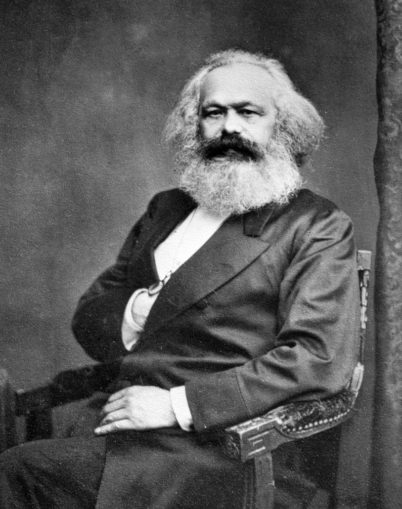
John Jabez Edwin Mayal, Public domain, via Wikimedia Commons
Kristian Niemitz, Head of Political Economy at the Institute of Economic Affairs, wrote a book last year that explores the reasons why the idea of socialism persists as a viable economic system. In “Socialism: the Failed Idea that Never Dies” Niemitz notes that whenever real-life events demonstrate, yet again, that socialism, in all its guises as an economic system, simply doesn’t work, its ever-faithful adherents in the West declare that what failed wasn’t “real socialism”.
Note that the “fake socialism” epithet is only ever attached to a system after the event; when a socialist project is still under way, or in its early stages, no one ever claims “what we are doing isn’t real socialism”. As Niemitz shows, every socialist project goes through a honeymoon phase that elicits sentimental appeal during which prominent Western intellectual liberals praise it enthusiastically. Only when the project’s grandiose ideas are seen to founder “in shallows and in miseries” do they reclassify it as “not real socialism”. The Nordic countries are sometimes cited as examples of successful socialism, but they all possess a powerfully functioning capitalist base underlying their industrial strength, not to mention an abundance of natural resources.
Contrasting views
I can cite personal experience. My South African-born parents were anti-apartheid activists as well as communists, and when the Nationalist government made life intolerable for them because of their anti-apartheid activities, rather than because of their communist allegiance, in 1955 our family emigrated to England. It was their detestation of the apartheid system that had spawned their life-long embrace of communist principles, both eliding into a single belief-system. In 1956 Khrushchev’s speech to a closed session of the Communist Party’s 20th Congress laid bare the full horrors of Stalinism, but my parents and their closest “comrades” could not countenance what they heard, and withdrew into a fantasy of disbelief.
The distinction between communism and socialism isn’t usefully pertinent to this debate. Whether the former is an extreme form of the latter, or the latter a milder form of the former, is merely an academic question of degree, not of destination: the trajectory of both finishes up in varying degrees of societal impoverishment or worse.
In some ways, socialism is the more pernicious because it masks its eventual destination by conceding the necessity of a role for private enterprise, and is thus like being “only slightly pregnant”. By contrast Communism, as defined in Marx’s “Communist Manifesto”, makes no pretence about its objectives of, inter alia, abolishing private property and extinguishing personal freedom – all for the sake of “the common good” based on the belief that “the end justifies the means”.
The infallible direction of travel
No one can define Socialism’s final form because it never quite gets there before imploding in an amalgam of standard leftist principles: nationalisation of all public services; trade union domination over the labour force, permitting secondary picketing and wildcat strikes; heavy representation by “worker-directors” on company boards; transferring company shares to workers’ trusts; inflicting penal rates of tax on high earners; automatic index-linking of public sector pay and pensions. Somehow these enticing features have never made much headway with a free-voting electorate.
Why is it that people with enough savvy to feed themselves cannot comprehend the most basic economic truths. John Cowperthwaite, Hong Kong’s first Financial Secretary, put it like this: “In this hard world we have to earn before we spend”. Every government that aspires to inflicting the joys of collectivism on its citizens includes a programme of “wealth redistribution”; but, as with every socialist programme ever tried, no guiding economic measurement is available to tell them that the wealth they are redistributing was not, and could not have been, created by them!
The gut-wrenching initiation
For readers interested in the origins of this persistent left-leaning thinking, it’s worth noting a few direct quotes from the creed from which such thinking originates. The “Communist Manifesto” by Marx and Engels, first published in 1848, begins by defining “bourgeoisie” as “the class of capitalists who own the means of production and employ wage-labour”; and “proletariat” as “the class of wage labourers who, having no means of production of their own, are reduced to selling their labour power in order to live”. It continues:
(i) “The immediate aim of the Communists is formation of the proletariat into a class, overthrow of the bourgeoise supremacy and conquest of political power by the proletariat.”
(ii) “The theory of the Communists may be summed up in the single sentence: Abolition of private property. You reproach us with intending to do away with your property. Precisely so; that is just what we intend.”
(iii) “By freedom is meant, under the present bourgeois conditions, free trade, free selling and buying. But if selling and buying disappears, free selling and buying disappears also. This talk of buying, selling and trade has no meaning when opposed to the communist abolition of buying and selling, and of the bourgeoisie itself.”
(iv)“Abolition of the family! Even the most radical flare up at this infamous proposal of the Communists. On what foundation is the present family, the bourgeois family, based? On capital, on private gain. In its completely developed form this family exists only among the bourgeoisie. This state of things finds its complement in the practical absence of the family among proletarians, and in public prostitution. The bourgeois family will vanish as a matter of course when its complement vanishes, and both will vanish with the vanishing of capital.”
(v) “Bourgeois marriage is in reality a system of wives in common and thus, at the most, what the Communists might possibly be reproached with is that they desire to introduce, in substitution for a hypocritically concealed, an openly legalised community of women.”
(vi) “The first step in the revolution by the working classes is to raise the proletariat to the position of ruling class to win the battle of democracy”.
The choice of poisonous utterances is boundless, but the above extracts convey the basis of the revulsion I experienced as a 22-year-old when I first read the Manifesto, a text my parents never displayed or referred to at home. A few months before he died I confronted my father, still a committed “armchair socialist” with a large home in Hampstead, and asked him how he had ever been able to uphold a belief in this toxic doctrine, hatred exuding from every page, patently beyond any possibility of implementation other than to provide the excuse for the slaughter of countless millions. He didn’t demur or attempt a rational explanation, but merely conceded that the economics of communism could never work, and that he had possibly made a poor choice all those years ago. I left it at that.
Oh, and Capitalism?
Under capitalism the satisfaction of wants must be paid for by prior production funded by savings. In practice, like any economic system, it is often marred by excesses, abuse and distributive distortions. But there are no adverse manifestations of capitalism that cannot be cured by pursuing policies of sound money, unilateral free trade, civil liberty, free markets, minimal state interference, and a transparent low tax regime.
Unlike the communist system of “command” economics, under which the dead hand of state supplants personal choice with dictated action, capitalism is not a system imposed from without. It is rather the nexus in which human actions, springing from individual desires and choices, come together. It flourishes on competitive innovation, with success reflected in productivity with a view to profit – the only source of saving on which further growth depends. Had it not been for the spirit of competitive innovation, the primitive hole in the ground would not have been superseded by flush toilets; there would be no technology that incentivised the internet, mobile phones or the countless attributes of life as lived today.
Apple, a company that began in a garage in 1976, run by two kids with the crazy idea that people should have their own computers, now has a market capitalisation that exceeds the value of the entire FTSE 350. Steve Jobs and Steve Wozniak provide an example of what can be achieved when left to innovate, untrammelled by regulation or intervention.
© Emile Woolf August 2023 (website)



